12 Proven Ways To Increase Your Metabolism
One of the most burning questions in weight loss: Can you speed up your metabolism? Jeff Nippard, a Canadian natural pro bodybuilder and internationally qualified powerlifter, has a BSc in biochemistry/chemistry and a passion for science. He has amassed a large following on social media by sharing his science-backed diet and fitness tips with his 4.4 million YouTube subscribers. In one viral video, he discusses metabolism and reveals all the ways to speed it up. "I'm gonna be answering the question of whether or not you can speed up your metabolism," he says.
What Is Metabolism?

Nippard starts by explaining "what metabolism actually is in a fitness context where the goal is to either lose fat or build muscle." When discussing metabolism, we are actually talking about "metabolic rate or total energy expenditure," he says. "We wanna know how many calories your body burns per day. So when we say that someone has a fast metabolism, we mean that their body burns a lot of calories, allowing them to eat more food. And when we say someone has a slow metabolism, we mean their body doesn't burn as many calories, and they often have to diet on less food to see weight loss."
How Do Metabolisms Vary?
"But how different are people's metabolisms anyway? If we took two people of the same sex at the same height and the same body weight, could their metabolisms actually be all that different? Yes, they could be. Metabolic rates are extremely individual, much more so than many people even realize," he continues, showing the findings of a 2022 study on daily energy expenditure highlighting varying differences and that the amount someone would need to lose weight could be under 1400 calories, while another could eat 5,000.
Can Someone Speed Up Their Metabolism

"The burning question is, is there a way for the person with the so-called slow metabolism to speed up their metabolism so they can eat more calories?" he asks. He then divides strategies for improving metabolism into three groups: It works, It might work, and It probably doesn't work.
RELATED: 9 Best Tips to Manage Your Ozempic Side Effects
Way 1: Drinking More Water

Does drinking more water increase metabolism? "The answer is yes. A little," says Nippard. "Each glass of cold water you drink burns about eight calories. So every time you drink another glass of water, you get an extra eight-calorie boost." He adds that "cold water gives a bigger boost than room temperature water because your body has to burn calories to heat the cold water to body temperature."
Does Water Speed Metabolism? Yes

"Generally speaking, eight to 12 glasses or about two to three liters per day is plenty, and most people can simply use their internal thirst signals to guide their intake. Water can help you feel more full at meals, though, so if it does help you keep your daily caloric intake down, drink away," he says.
Way 2: Green Tea

Up next, green tea? "A simple Google search returns over 40 million results for green tea and metabolism. Some boasting up to an 8% spike. But what does the science say? Well, this 2021 systematic review found that of the four studies looking at acute metabolic effects, three found no effect while one found a 79-calorie increase in daily energy expenditure."
Does Green Tea Speed Metabolism? Probably Not

"Digging into that study deeper, however, there were only ten subjects, and it only lasted 24 hours so I wouldn't draw any strong conclusions from it. Also, there are at least two studies on green tea and long-term fat loss, and both found no benefit. So while you may get a small metabolic boost from green tea, it doesn't seem to translate to more fat loss over the long term, so I'm putting it in the probably doesn't work category."
RELATED: I Tried the 12-3-30 Treadmill Workout, and Here's What Happened
Way 3: Eating Spicy Food
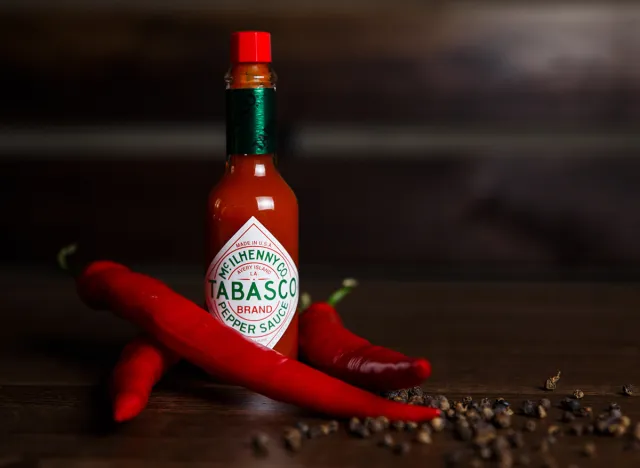
How about spicy food? "Chili peppers seem to be the most promising from a metabolic standpoint since they contain a compound called capsaicin, which has plenty of research showing a thermogenic effect. For example, this 2017 meta-analysis of nine studies found that capsaicin increased energy expenditure by 69 calories per day on average, but only in the studies where the subject's BMI was over 25. So in the overweight zone in this bowl of green chili, there's about 0.5 grams of chili pepper, which would correspond to about two milligrams of capsaicin," he says.
Does Spicy Food Speed Metabolism? Possibly

"Extrapolating out the meta-analytic data" would calculate to "best a roughly 20-calorie metabolic boost," he continues. "Obviously, this pales in comparison to the 700 calories in the meal itself, but it could be enough to make capsaicin a reasonable candidate for supplementation. Still, I think the main reason that spicy food can be helpful for weight loss is not that it might give a 20-calorie metabolic boost but rather that it can increase satiety and fullness. I find I eat more slowly and drink more water when I have a spicy meal, and if that helps you eat fewer total calories for the day, that could help drive fat loss. I'm putting spicy food in the might work category."
Way 4: Taking a Sauna

Next up, a hot sauna. "You sweat in the sauna? Does this mean you're burning extra calories? Well, according to this 1995 study from Japan, sauna did increase oxygen consumption and heart rate by 20 to 25 beats per minute," he says.
Do Saunas Speed Metabolism: Probably Not

"For a 180-pound person, this would translate to about 19 calories burned from sitting in the sauna for 10 minutes. For comparison, you'd burn about 14 calories just sitting in a normal room for 10 minutes. So you're looking at about a five-calorie difference. That's one stick of gum," he points out. "Nothing worth talking about. Sauna probably doesn't work in the category of boosting metabolism."
RELATED: I Lost 66 Pounds After Adding These 10 Simple Habits
Way 5: Ice Baths

"Obviously, cold plunges and ice baths are having a moment on social media, but do they boost your metabolism? Well, it looks like oxygen consumption increases when you sit in a cold bath and shiver, indicating a metabolic boost," he reveals.
Do Ice Baths Speed Metabolism? Probably Not
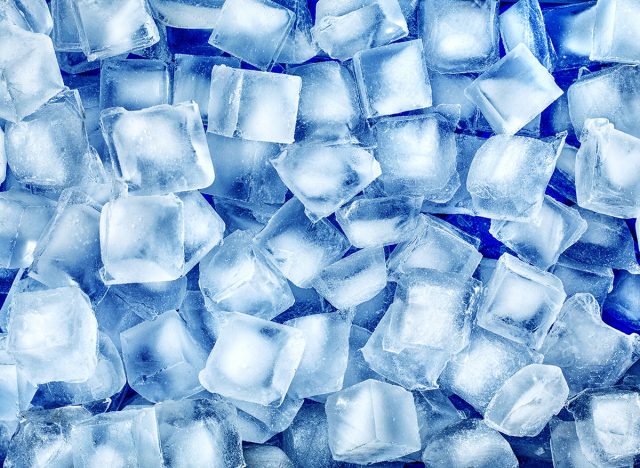
"However, the actual numbers are pretty underwhelming. If you sit neck-deep in an ice bath for 10 minutes, you'd burn about 28 calories. Again, for comparison, you'd burn 14 calories just sitting at room temperature. So you're looking at about a 14-calorie boost from the cold bath. Cold baths are also going in the probably doesn't work category."
Way 6: Building Muscles
What about building muscle? "You've likely heard that muscle burns more calories than fat, and this is true three times the amount. In fact, at rest, one pound of fat burns about two calories per day, while one pound of muscle burns about six calories per day," he explains.
Does Building Muscle Speed Metabolism? Yes

After doing math, he calculates his expenditure. "If I just sat down all day, the fat on my body would burn 24 calories, and the muscle on my body would burn 480 calories. That's a 456-calorie difference. Not bad at all. Let's consider you as an example. Let's just say you're a relatively new lifter, and over the next five years, you put on 30 pounds of muscle. If you burned 2,500 calories per day before, you'd burn 2,680 calories per day. Now, after adding the new muscle, there is a 180-calorie difference, about four extra kiwis you could eat daily. And so far, this is the biggest metabolic booster we've seen. And so I'm going to put building muscle in the it works category," he says.
Way 7: Reverse Dieting

What about reverse dieting? "This has become very popular over the last few years. Reverse dieting is exactly what it sounds like—the reverse of dieting. Instead of decreasing calories, you gradually increase calories with the goal of rebuilding your metabolism," he says, noting that he's "a bit skeptical of it for sure. I have seen plenty of cases where people have increased their caloric intake by several hundred calories while maintaining their body weight."
RELATED: 20 Superfoods for People Over 50
Does Reverse Dieting Speed Metabolism? Possibly

"My main grip with reverse dieting is that I just don't think it's necessary to go slowly after a diet. It makes much more sense to go straight to your new maintenance immediately. Then, once you're at your new maintenance, you can gradually increase your caloric intake from there. Of course, at a certain point, you'll reach the upper limit of your dynamic maintenance range, and at that point, you'll start gaining weight," he says. "As of now, I'm gonna put reverse dieting in the might work category."
Way 8: Meal Frequency
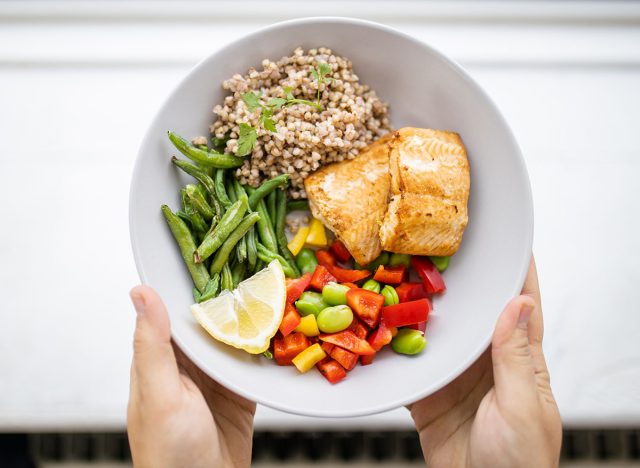
What about meal frequency? Does eating more meals throughout the day keep the metabolic furnace burning? He goes on to discuss a few studies.
Does Meal Frequency Speed Metabolism? Probably Not

His final answer? "It doesn't seem to, no," he said, citing the science. "I'm personally not convinced that a higher meal frequency gives a meaningful boost in metabolism, and I'm putting meal frequency in the category that probably doesn't work."
Way 9: Cardio
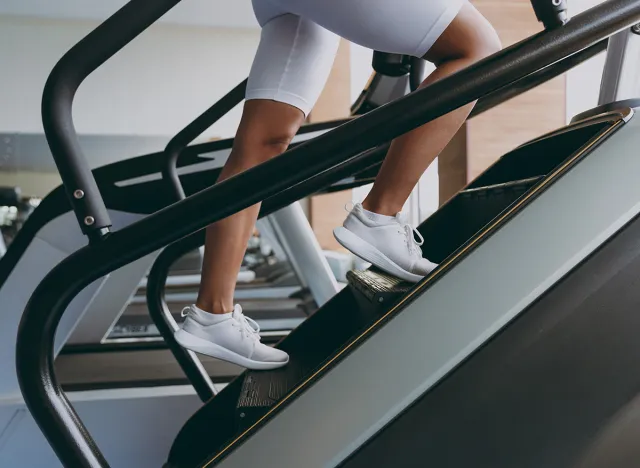
"Okay, so what about cardio? Cardio obviously burns calories. However, research shows that cardio also causes something called energy compensation. This means that when you burn more calories through cardio, your body subconsciously burns fewer calories through NEAT or non-exercise activity thermogenesis. This is the component of metabolism that includes activities other than exercise, so stuff like fidgeting and bobbing your head to music."
Does Cardio Speed Metabolism? Yes
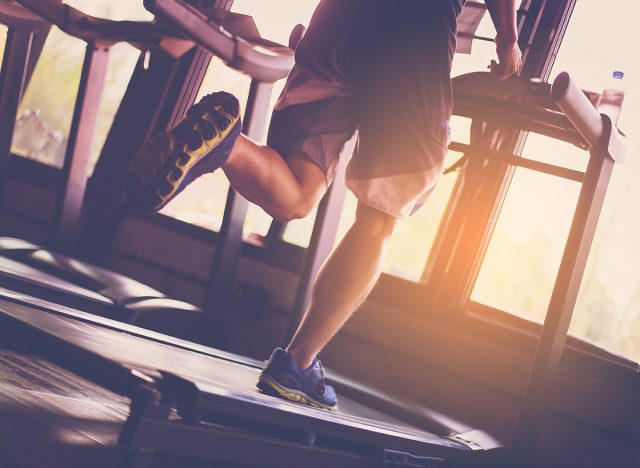
"There are large individual differences in energy compensation, but on average, for every 100 calories you burn by doing cardio, you'll only actually increase your daily energy expenditure by 72 calories," he says. "This is why I prefer diet as the main tool for establishing a caloric deficit and cardio as a secondary tool. 'cause, with cardio, you tend to get less caloric bang for your buck. Still, even with energy compensation in mind, cardio burns calories, so it belongs in the it works category."
RELATED: 12-3-30 Walking Method: 20 Proven Tips to Lose Weight Faster
Way 10: Weighted Vests

Next up, weighted vests. "There's some cool science behind this. The general idea is if I weigh 160 pounds right now and I start wearing a 20-pound weighted vest. My body will start to think that I weigh 180 pounds and burn calories like a 180-pound person would," he explains.
Do Weighted Vest Speed Metabolism? Possibly

"Recent evidence has suggested the existence of a system of sensors in the body called the gravitas stat, which senses changes in loading on the bones. If these sensors get the idea that you're now a heavier person, it'll increase your caloric expenditure and decrease hunger levels," he says. "I'm tempted to put weighted vests in the it works category because I think it probably does. However, I'm going to leave it under the might work category for now until we get more published research."
Way 11: Slow Dieting

"Lastly, there are two other less sexy but still very effective metabolic strategies that I'd like to mention," he said. The first? Slow dieting, "Avoid dieting on very low calories."
Does Slow Dieting Speed Metabolism? Yes

"The more aggressively you cut, the more your metabolic rate decreases. So, generally speaking, you should aim to lose about 0.5 to 1% of your body weight per week. And the more you go above this zone, the more likely it is that your metabolism will start tanking. Slow dieting definitely works."
Way 12: NEAT Smuggling

How about NEAT smuggling? "You should try to smuggle in extra non-exercise activity where you can," he says.
Does NEAT Smuggling Speed Metabolism? Yes

"This is where the weighted vest might be helpful, but there are other things you can do, like park further from the grocery store, take the stairs over the elevator, and regularly stand up and stretch at your desk. I call these little activities throughout the day NEAT smuggling, and I'd also put it in the it works category."
RELATED: 20 Incredible Ozempic Success Stories of All Time
Weight Loss Success

"It's also worth keeping in mind that even if you implement some of these strategies and you still have a relatively slower metabolism, you can, of course, still lose weight. In fact, research shows that metabolic rate isn't nearly as predictive of successful long-term weight loss as many people think; people with faster metabolisms can fail to lose weight, and people with slower metabolisms can succeed to lose weight," he points out.
Count Macros, He Suggests
"The things more reliably associated with successful long-term weight loss are being physically active, regularly weighing yourself, weight training, and making lifestyle changes." He also recommends counting macros using an app. And if you enjoyed this article, take advantage of these 15 Quick Ways to Lose Body Fat Percentage in a Week.





